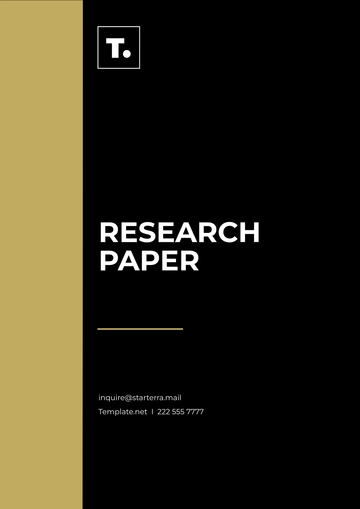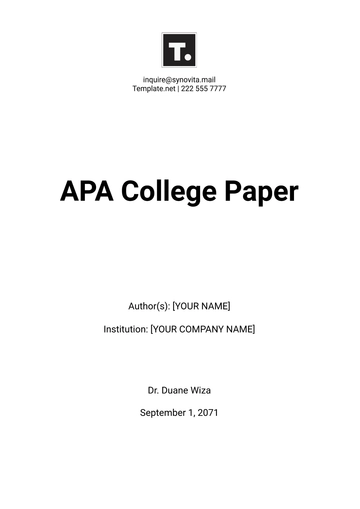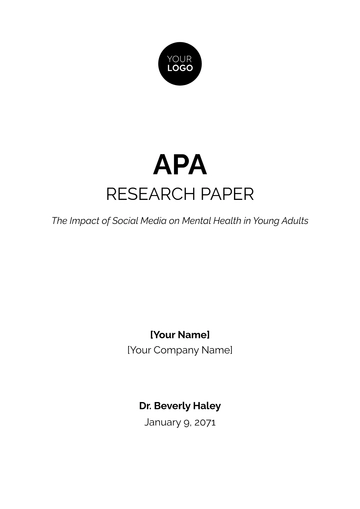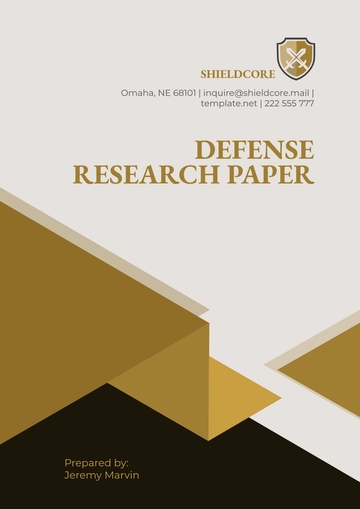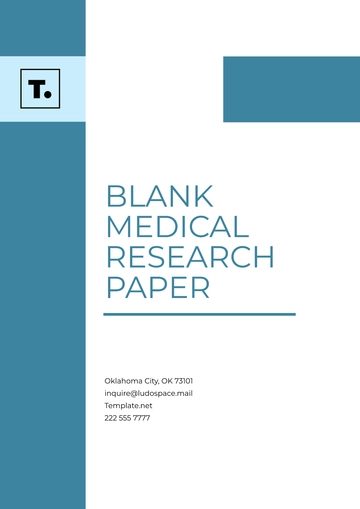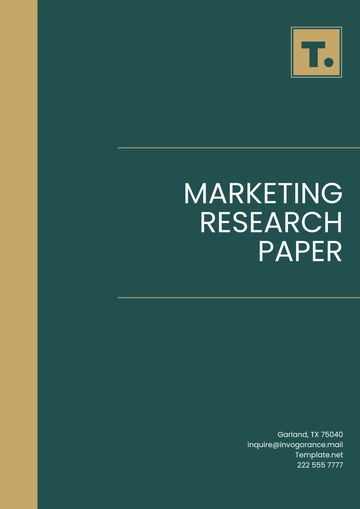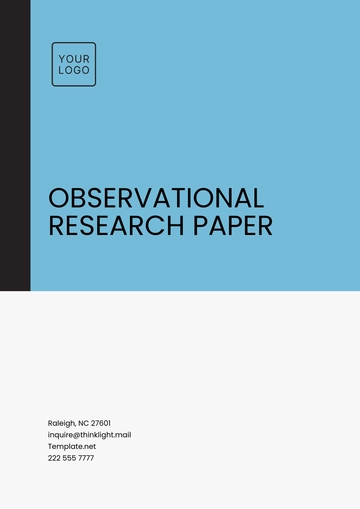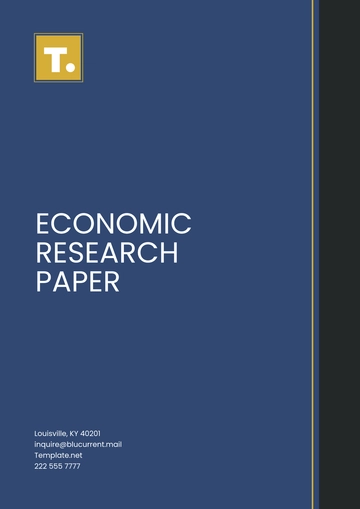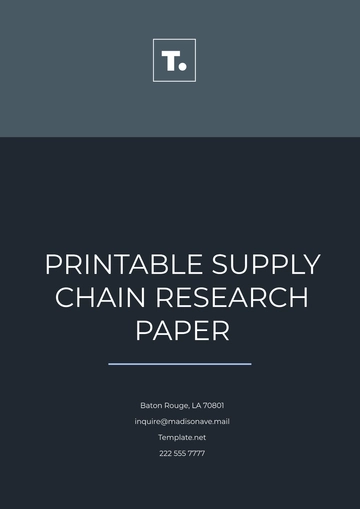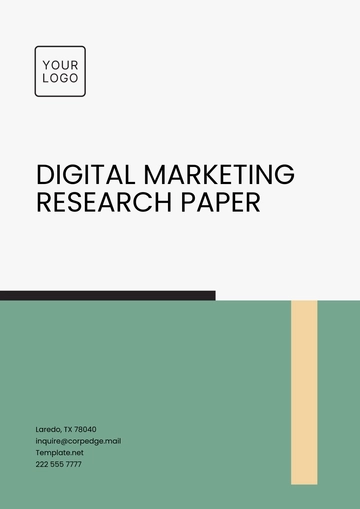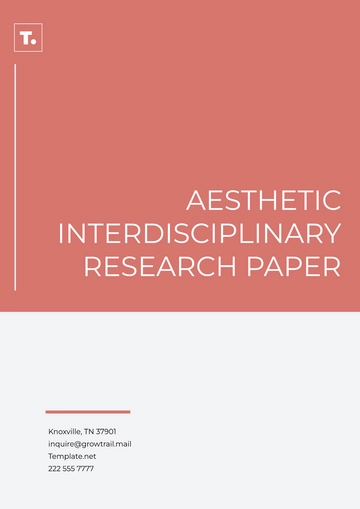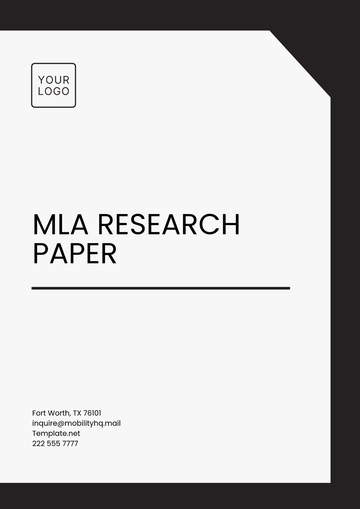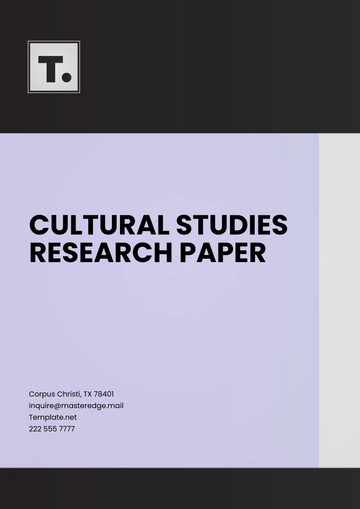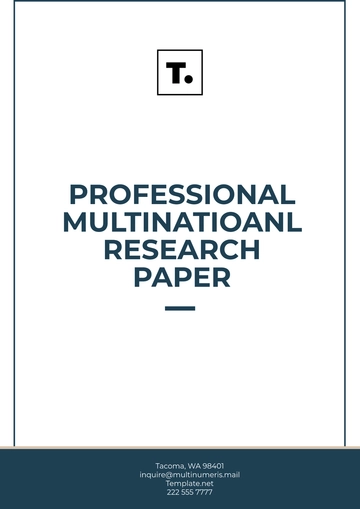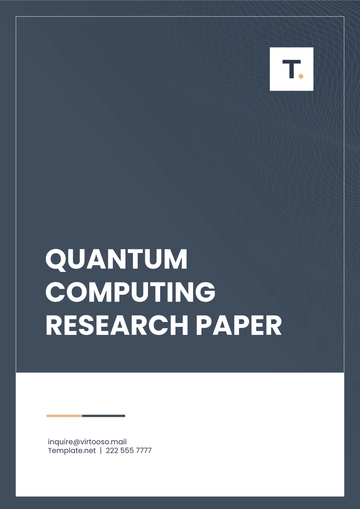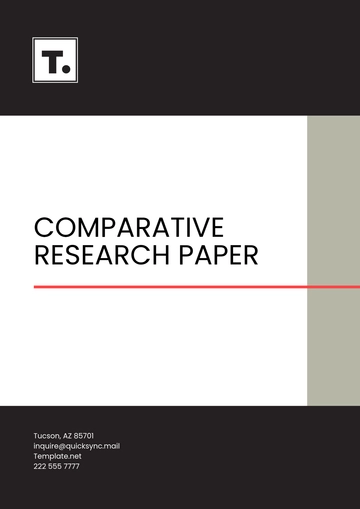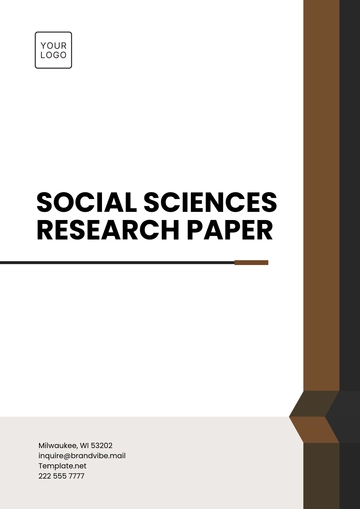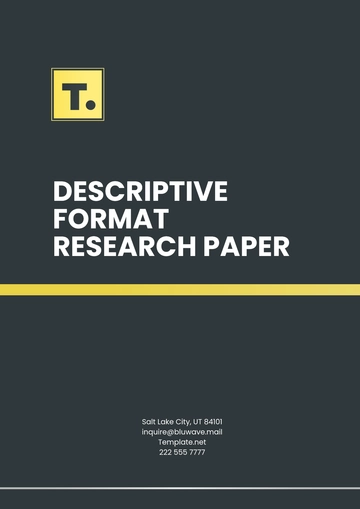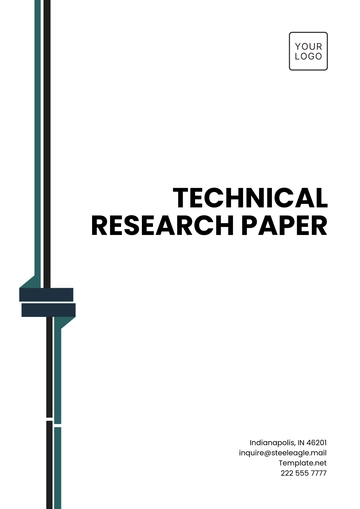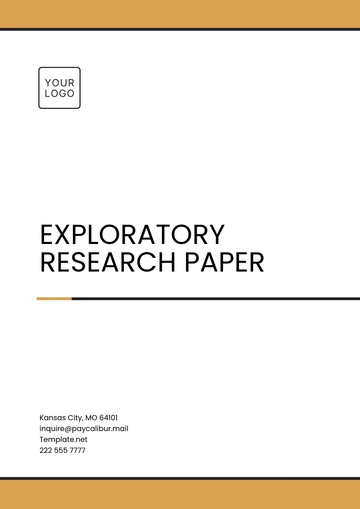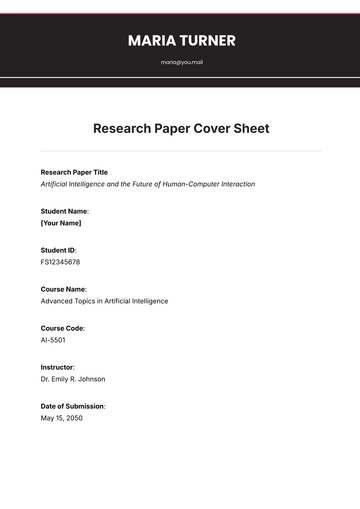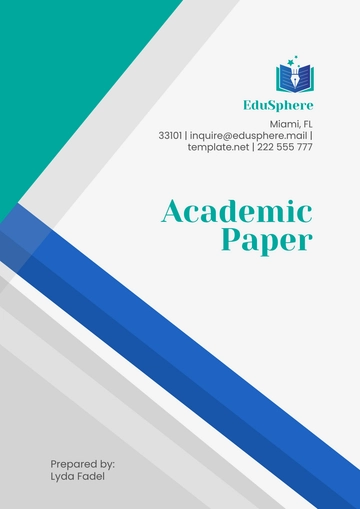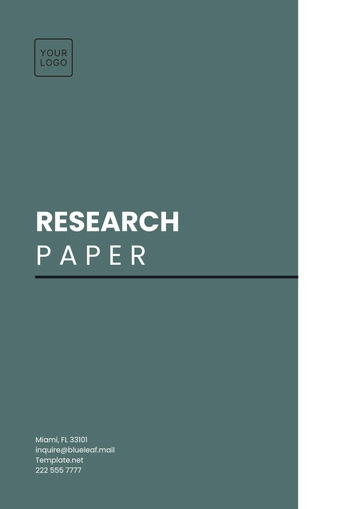Free Research Paper Outline
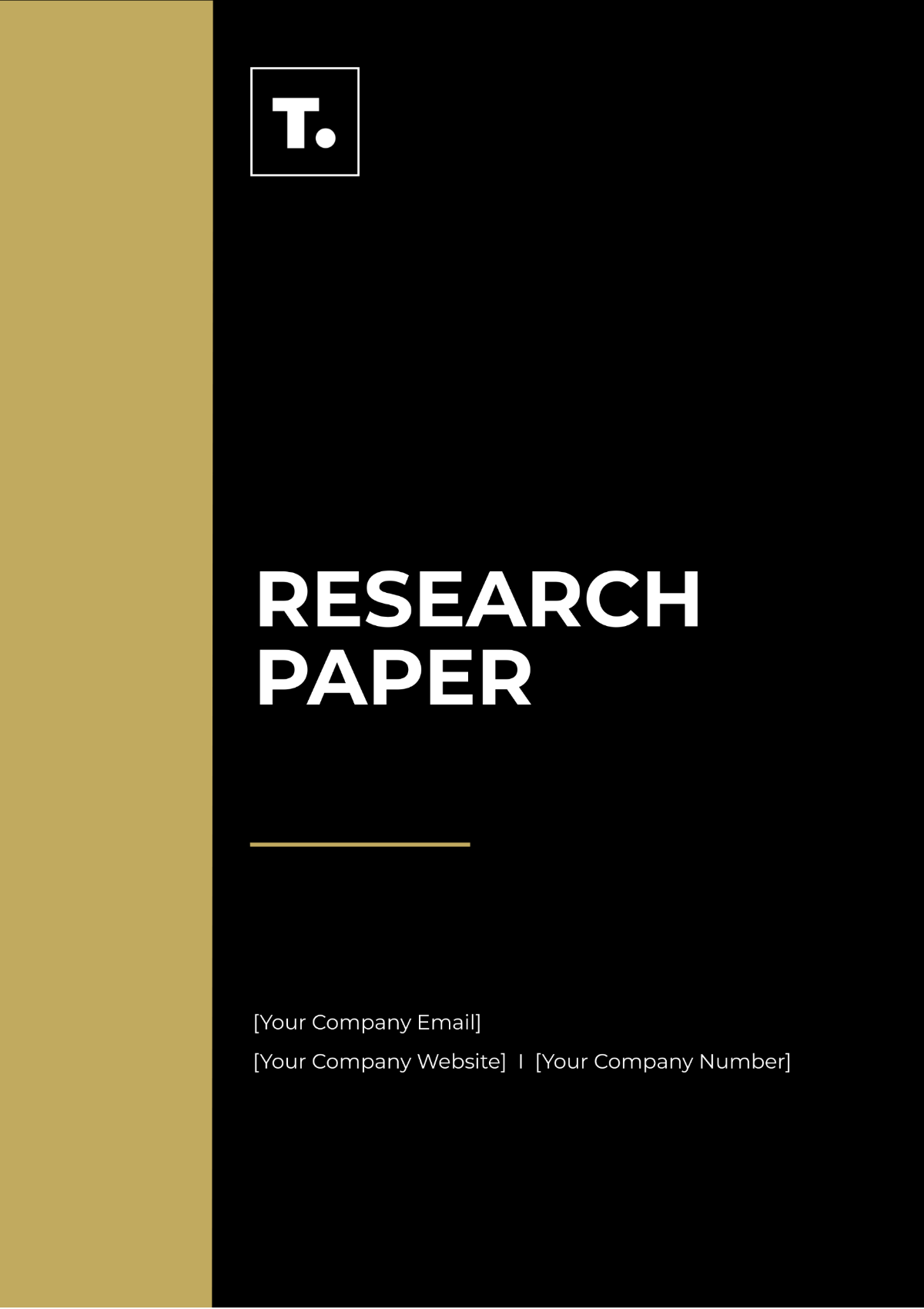
I. Introduction
A. Background
The integration of technology into education has revolutionized the way students learn and educators teach. This research explores the significant impact technology has on modern education, including the benefits and challenges it brings. [Your Name] has dedicated this study to understand these transformations.
B. Research Objectives
This paper aims to:
Examine the role of technology in enhancing educational outcomes.
Identify the challenges associated with the use of technology in education.
Propose solutions to overcome these challenges.
II. Literature Review
A. Historical Perspective
The evolution of technology in education dates back to the introduction of the blackboard in the 19th century. Since then, educational tools have progressed from overhead projectors to interactive whiteboards and, most recently, to digital learning platforms. [Your Company Name] has been at the forefront of adopting these advancements.
B. Current Trends
Modern educational technology includes a wide range of tools such as Learning Management Systems (LMS), educational software, and virtual classrooms. These tools have made education more accessible and personalized. [Your Company Number] provides a comprehensive analysis of these trends.
Year | Technology Introduced | Impact |
|---|---|---|
1980s | Personal Computers | Increased individual learning |
1990s | Internet | Access to vast information |
2000s | Interactive Whiteboards | Enhanced interactive learning |
2010s | Mobile Learning | Learning on-the-go |
2020s | Virtual Reality (VR) | Immersive learning experiences |
III. Methodology
A. Research Design
This study employs a mixed-methods approach, combining qualitative and quantitative research methods. Surveys, interviews, and data analysis are used to gather comprehensive insights. [Your Name] has meticulously planned the research design to ensure validity and reliability.
B. Data Collection
Data will be collected from:
Surveys distributed to educators and students
Interviews with technology experts
Analysis of academic performance metrics pre- and post-technology integration [Your Company Name] will oversee the data collection process to maintain high standards of accuracy.
IV. Findings
A. Benefits of Technology in Education
Enhanced Engagement: Interactive tools and multimedia content increase student engagement.
Personalized Learning: Adaptive learning technologies cater to individual student needs.
Access to Resources: Digital libraries and online resources provide vast learning materials.
Collaboration: Technology facilitates collaboration through online forums and group projects.
Flexibility: E-learning platforms offer flexible learning schedules. [Your Company Number] emphasizes these benefits in their educational programs.
B. Challenges of Technology in Education
Digital Divide: Inequitable access to technology among students.
Cybersecurity Threats: Risks associated with data breaches and online safety.
Teacher Training: Need for continuous professional development in technology use.
Cost: High costs of technology implementation and maintenance.
Distraction: Potential for technology to distract students from learning. [Your Name] has identified these challenges through extensive research.
Challenge | Description | Proposed Solution |
|---|---|---|
Digital Divide | Inequitable access to technology | Provide affordable devices |
Cybersecurity Threats | Risks of data breaches and online safety | Implement robust cybersecurity measures |
Teacher Training | Lack of adequate training for teachers | Continuous professional development |
Cost | High costs of implementation | Seek government and private funding |
Distraction | Technology as a source of distraction | Implement usage guidelines |
V. Discussion
A. Analysis of Benefits
The integration of technology has proven to significantly enhance student engagement and educational outcomes. Personalized learning, enabled by adaptive technologies, allows students to learn at their own pace, catering to diverse learning styles. [Your Company Name] is committed to implementing these benefits in their curriculum.
B. Addressing Challenges
To mitigate the challenges, educational institutions need to focus on bridging the digital divide by providing affordable devices and internet access. Additionally, robust cybersecurity measures must be in place to protect student data. Continuous professional development for teachers is crucial to ensure they are well-equipped to integrate technology effectively in their teaching. [Your Company Number] supports these initiatives through targeted programs.
VI. Conclusion
A. Summary
The impact of technology on modern education is profound, offering numerous benefits such as enhanced engagement, personalized learning, and greater access to resources. However, challenges such as the digital divide and cybersecurity threats need to be addressed to maximize the potential of technology in education. [Your Name] summarizes these findings succinctly.
B. Future Research
Further research is needed to explore long-term impacts of technology on educational outcomes and to develop more effective strategies for integrating emerging technologies in the classroom. [Your Company Name] plans to continue this research to contribute to the field.
- 100% Customizable, free editor
- Access 1 Million+ Templates, photo’s & graphics
- Download or share as a template
- Click and replace photos, graphics, text, backgrounds
- Resize, crop, AI write & more
- Access advanced editor
Introducing the Research Paper Template from Template.net: a meticulously crafted resource tailored for scholars. Dive into your academic pursuits with ease using this editable and customizable template, seamlessly adaptable to your unique needs. Crafted for efficiency, it's effortlessly editable in our AI Editor Tool, ensuring seamless workflow integration.

